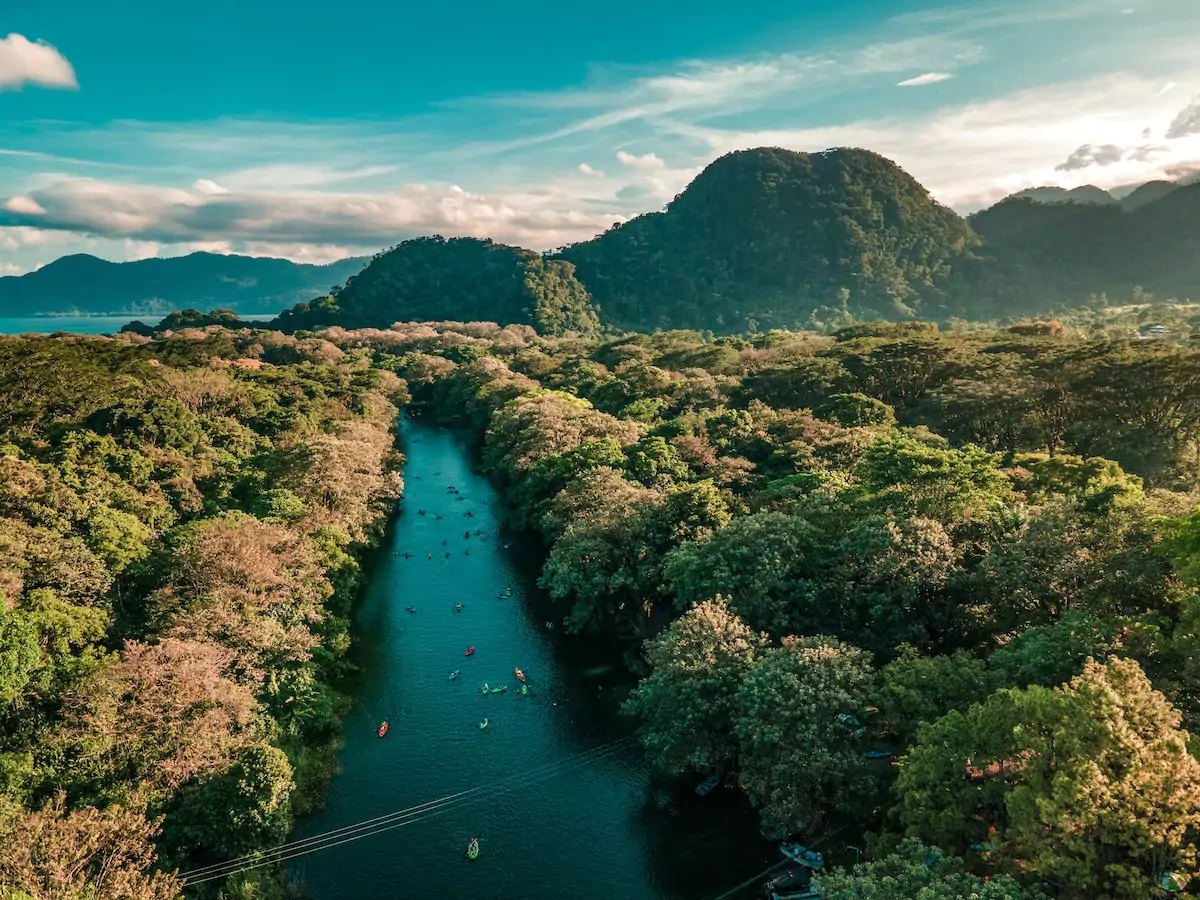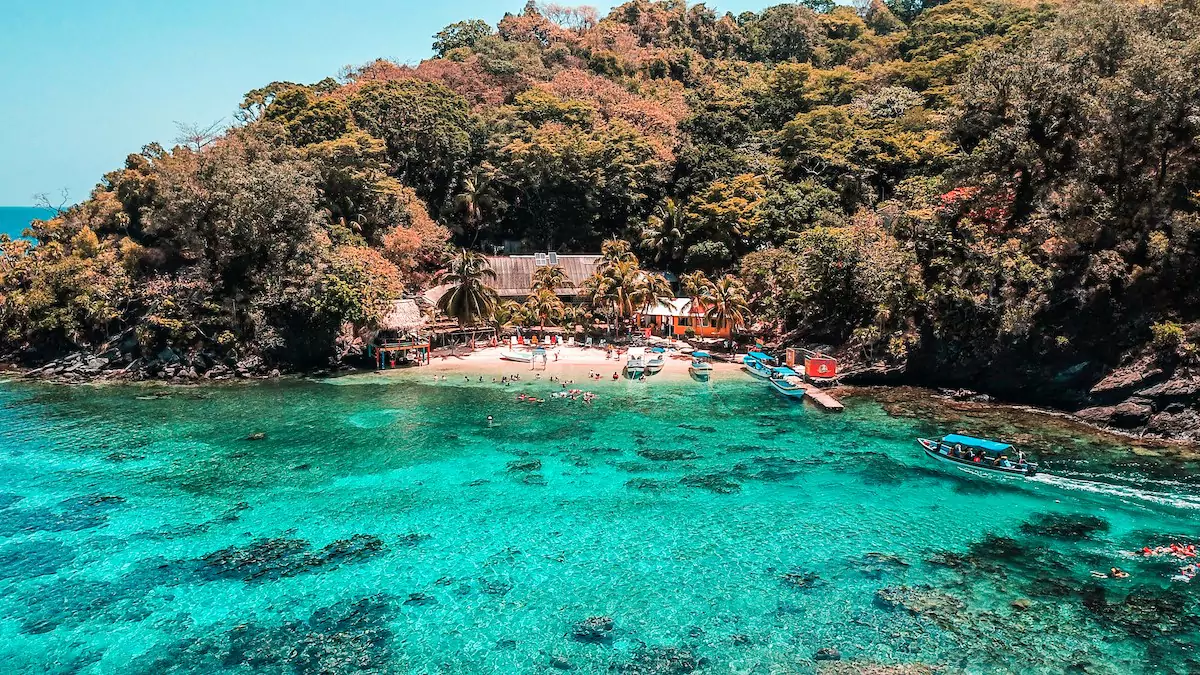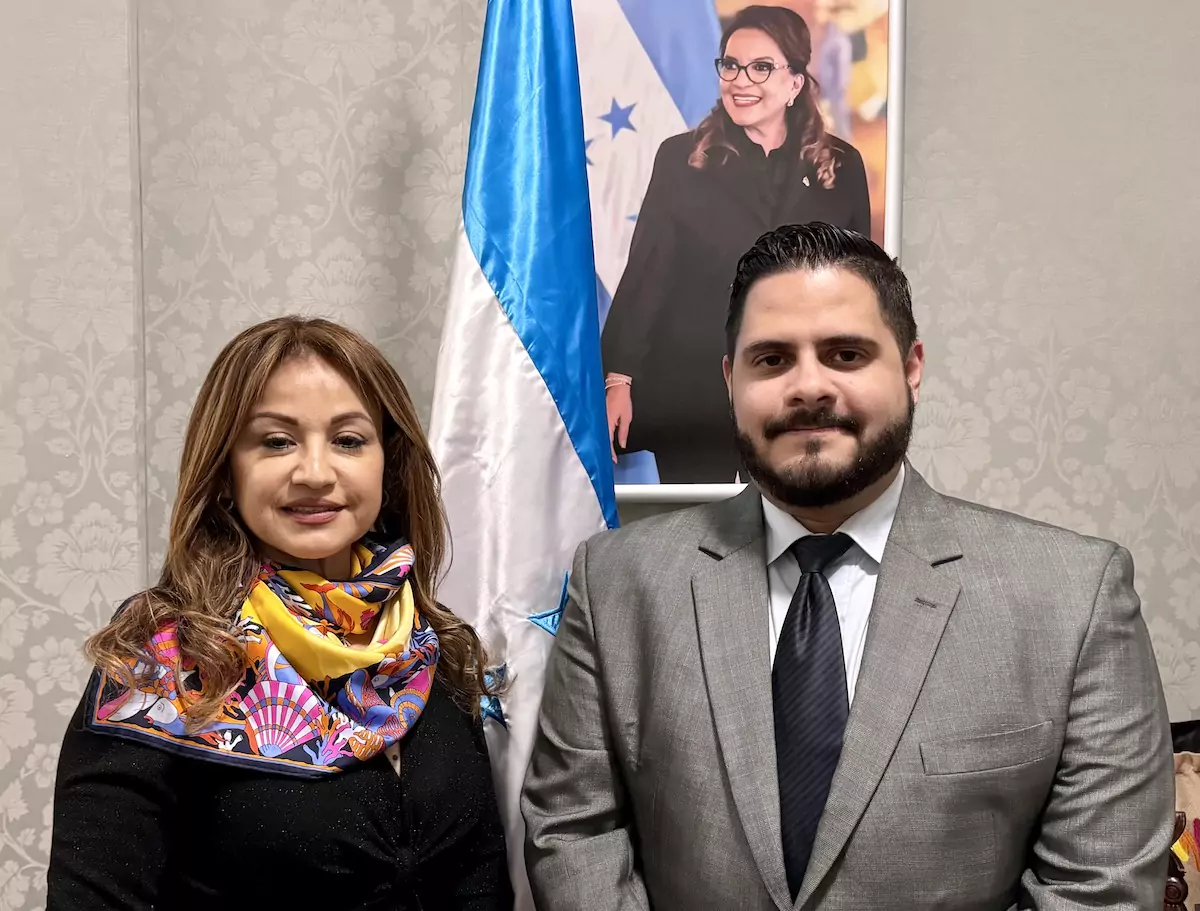Monaco Life speaks to Emmanuel Zuñiga Garcia to learn more about his diplomatic ambitions and the Honduras Embassy’s close cooperation with the Ibero-American Association of Monaco (AMI) in organising their upcoming fundraiser, a Gastronomy Gala, at the Yacht Club de Monaco.
The AMI, presided over by Sheramin Beauseigneur, works with governments, businesses and reputable personalities to build bridges between Latin America, Spain, Portugal and Monaco, and on 16th May, the association will be hosting a gastronomic gala honouring the Republic of Honduras at the Yacht Club de Monaco.
This event is being organised under the patronage of the Embassy of Honduras in Paris and by a team led by Minister Emmanuel Zuñiga Garcia, Honduras’ representatives in Monaco, and the Monaco Department of National Education.
At the event, the skilled students of the Monaco Technical and Hospitality School will have the chance to work alongside four renowned chefs from Honduras: Javier Kee Ham Hernandez, Carlos Alberto Espinal, Jose Luis Escalante Oliva and Israel Navarro, as well as the experienced barman Augusto Roberto Santos Gonzalez. Together, they will prepare an elaborate gourmet dinner for the privileged guests of the Gastronomy Gala.
Through ancestral flavours, the AMI and Emmanuel Zuñiga Garcia aim to promote understanding, respect and appreciation for Honduras’s gastronomy and cultural heritage, foster international interaction and cooperation, and raise funds for regional solidarity projects.
Monaco Life: Can you tell us more about yourself and your diplomatic career?
Emmanuel Zuñiga Garcia: I am a lawyer born and raised in Honduras. [Being] Minister is my first diplomatic assignment, and we [my team and I] are part of a new government striving to cement the foundations of a better, progressive country. With that spirit in mind, we have assumed the challenge of representing Honduras abroad, putting our capabilities at the nation’s service, [a nation] led by the first female president of Honduras, Xiomara Castro Sarmiento. Previously, I served seven years in the government’s anti-corruption sector, specifically in civil society, and trained as an arbitrator and secretary for the Arbitral Tribunal of the Chamber of Commerce of Tegucigalpa (CCIT).
How would you define your role as Minister of Cultural and Business Affairs?
I consider the role of a minister to be exceptionally versatile and empowering; it facilitates efforts and establishes solid connections with the authorities of the Receiving State and important economic actors to increase the levels of cooperation, integration, cultural and commercial relations, and other national objectives.
The minister’s relevance as second in command of an embassy is very significant since they participate in all relevant processes, especially in terms of executing foreign policy, promotion and international cooperation. This is in addition to the work carried out to support the Honduran diaspora and the consular section. The minister has a crucial function of opening doors in diplomacy.
What is your opinion of the value of cultural diplomacy in international relations?
Cultural diplomacy should be given greater relevance and prominence in international relations. The cultural component can become an element to bring visions, peoples and nations closer together; [it is] an essential tool in eliminating barriers and creating an atmosphere of peace and global prosperity.

What are your goals as Minister of Cultural and Business Affairs for the Embassy of Honduras in Monaco?
Monaco is globally relevant due to its exceptional touristic and commercial position, and cultural exchange is one of the essential pillars for the consolidation of bilateral relations.
Essentially, the objective is to create links between Honduras and the Principality so that Monegasques and residents alike can learn about Honduras and be encouraged to consider it an attractive tourist destination that offers top gastronomy and extraordinary cultural wealth. We wish to encourage and promote investments in areas of bilateral interest and establish institutional links to allow us to have prosperous relationships and cooperation agreements between governments. At a later, more advanced stage, we want to bring study or employment opportunities to young Hondurans in Monaco.
In your opinion, how does the AMI help promote cross-cultural understanding between Honduras and Monaco?
The AMI does laudable, creative and innovative work to strengthen ties between Monaco and Latin America. Their initiatives positively impact promoting our region. AMI’s support will help us open doors in Monaco, meet key influential people and get closer to our goal of rapprochement between Honduras and the Principality.
How is the Cultural Department of your Embassy supporting the AMI’s upcoming diplomatic gastronomy event at the Yacht Club de Monaco?
We received the proposal from the AMI with great enthusiasm as we saw it as a valuable opportunity to promote Honduran gastronomy in Monaco. We submitted the association’s request and the Central Government was pleased to accept the collaboration in organising the Gastronomic Gala. It is imperative to assist in these initiatives to promote our country actively.
We are planning the Gala and [will be] publicising Honduras’ cultural advantages and ancestral flavours. For this purpose, we formed a working team with members of the Honduran Foreign Ministry and the Secretariats of Culture and Tourism. We periodically hold virtual coordination meetings to agree on every detail of our participation in this significant event.
How relevant do you think gastronomy, art and music are as accessible forms of cultural diplomacy?
Cooking, arts and crafts, and folklore music transport us to different places; they bring us memories of people or situations that are important to each of us. Through these participatory events, we delve into personal, family or group layers, and this undoubtedly identifies and connects us all, which is why we value them as a highly positive space for nurturing interaction benefiting both countries.

How do you promote your country? What aspects of Honduran culture do you think are the most relevant?
Honduras is a country that has invaluable cultural, ecological and gastronomic wealth, and we aim to publicise the best we have to offer. We mainly promote culture through advertising on different official and public channels, social networks and other media, and through participating in international fairs and cultural events.
To attract visitors, we emphasise that Honduras enjoys an unparalleled geographical and strategic position, being in the heart of the Americas. It has it all!
We have beautiful beaches and coastal areas bathed by the Atlantic and Pacific oceans. The second most important barrier reef in the world is in Roatán, a popular diving destination for many cruises. There are also fascinating archaeological and colonial sites worth visiting.
Our exotic flora and fauna are exceptional, and we promote ecotourism through mountains and forests with a rich ecological diversity and natural reserves with high biodiversity. The agricultural environment is unrivaled, producing cocoa, coffee, bananas, oil, tobacco and more.
Honduras also has a significant cultural wealth reflected in our native peoples and their longtime traditions. To top it all off, we add our gastronomy, characterised by foods based on corn, cassava, banana, beans and avocado, among others, where you conjugate typical delicious dishes from the mountains to the coastal areas with a highly hospitable and attentive population.
As we say… Honduras, everything is here! Naturally yours!
What are the key challenges facing cultural diplomacy today?
Diplomacy faces many struggles because we live in a turbulent world marked by economic and cultural differences. The solution to all conflicts is peace and understanding via collaborative and sincere open communication between all countries and international players. We must recognise that each of us has an important role and respect people’s sovereignty by protecting fundamental universal rights.
The primary mission of cultural diplomacy is to reduce the divergences that may naturally exist between human beings, achieving unity through artistic, cultural and tourist exchange. The main path to peace is dialogue, so our role is fundamental in bringing together conflicting opinions, resolving controversies and seeking real integration between countries. Cooperation is paramount in reducing the impact of the scourges that afflict us worldwide, be it poverty, hunger, crime, terrorism or corruption.
How do you foster mutual understanding between different cultures?
It is necessary to prioritise empathy and openness to learn about other cultures, as well as understanding and solidarity, which are essential principles in the daily life of everyone in society and must be permanently present in the foreign policy of every country.
To achieve mutual understanding, we should develop actions focused on three macro vertices: continuously develop spaces for cultural exchange that allow us to promote and disseminate our customs, traditions and cultural wealth; create socio-cultural, commercial and governmental networks aimed at creating an environment conducive to sustaining cultural exchanges and dynamic and efficient cooperation; and generate development initiatives and short, medium and long-term cooperation agreements between countries.
For information on the AMI’s Honduras Gastronomy Gala, send an email to amimonaco21@gmail.com.
Join the Monaco Life community – sign up for the Monaco Life newsletter, and follow us on Threads, Facebook, Instagram, LinkedIn and Tik Tok.
Main photo: Sheramin Beauseigneur, President of AMI, with Emmanuel Zuñiga Garcia, Minister of Cultural and Business Affairs, Embassy of Honduras for Monaco and France, in Paris
